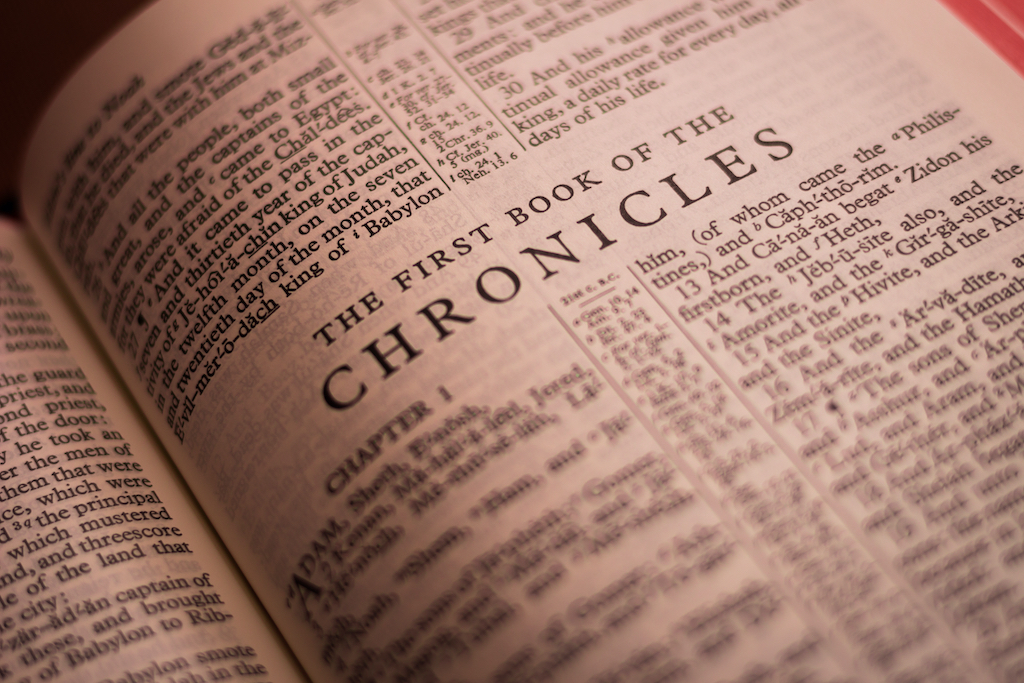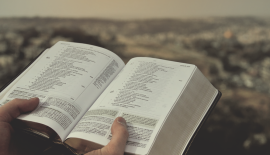Meet the Prophet David: A Key to Understanding Current Events and the Last Days
In our series about current events and the last days, we have learned that the Biblical covenants and the prophets are crucial to understanding the future. Two key prophets are Abraham and David, attested to in Genesis 20:7 and Acts 2:30.
While Abraham the patriarch did not make any recorded prophetic utterances, his walk with God and God’s covenant with him thrust him into the prophetic realm (Note: The near-sacrifice of Isaac in Genesis 22 was a prophetic act which speaks of the sacrifice of the only begotten Son and his resurrection [Hebrews 11:17-19]).
Our second unlikely prophet, David, the King, also had a transformational covenant with God. In addition, the psalms he wrote by the inspiration of the Holy Spirit were highly prophetic and Messianic.
Davidic Covenant
2 Samuel 7:11-17; 1 Chronicles 17:10-15; Psalm 89:3-4; Jeremiah 33:22, 25-26.
This remarkable covenant came about in a heart- warming way. Against great odds, God plucked David from total obscurity of the sheepfold and made him King of Israel. David loved and worshipped the God who promoted, protected and blessed him. Despite so many attempts against his life, his surviving and thriving was a miraculous testament to God’s goodness.
Paradoxically, while the King lived in palatial splendour in a house of cedar, the God of Israel dwelt in a tent. David was troubled by this apparent absurdity – why should the servant live better than the Master? God’s ark needed a house, and David was determined to build a magnificent dwelling for the Lord.
David shared his vision with Nathan, the prophet, who initially responded, “Go ahead and do what’s on your heart.” Yet soon thereafter, God told Nathan “No,” David was not to build the house of the Lord, later known as the temple. He was a man with much blood on his hands from waging great wars (1 Chronicles 22:8). Nevertheless, God graciously offered David something far better in return; He would build David a house – not a physical building – but an indestructible dynasty.
From this exchange between God and David came what has become known as the ‘Davidic Covenant.’ It represents and builds on the ‘seed’ aspect of the Abrahamic covenant. While it includes statements about ‘chastening’ and ‘building the temple,’ the key points of David’s covenant are as follows:
- God will give David a (special) son (2 Samuel 7:12; 1 Chronicles 17:11);
- The Son of David will sit on his father’s throne (2 Samuel 7:12; 1 Chronicles 17:11-12);
- The Son of David will rule and reign forever (2 Samuel 7:13; 1 Chronicles 17:12);
- The Son of David will simultaneously be the Son of God (2 Samuel 7:14; 1 Chronicles 17:13).
This singular individual, both Son of David and Son of God, became known as Messiah (Christ in Greek), the Anointed One. While the Old Testament recognised three categories of anointed – prophets, priests, and kings – the Son of David goes much further. He is the King of kings, Lord of lords, the Anointed of the anointed; a prophet like Moses, a priest like Melchizedek, and a king like David.
When the angel Gabriel announced to Mary of Nazareth that she would be the mother of Messiah, he mentioned the ‘two fathers:’
He shall be great, and shall be called the Son of the Highest: and the Lord God shall give unto him the throne of his father David. And he shall reign over the house of Jacob forever; and of his Kingdom, there shall be no end – Luke 1:32-33
In verse 32, the coming baby is called ‘Son of the Highest,’ namely God, and David is also referred to as ‘his father.’ Verse 33 announced the fulfilment of the Davidic covenant – He will reign forever.
In essence, the Son of David will rule the people of God in the promised land (2 Samuel 7:10) and the whole world (Psalm 22:27-28; Zechariah 14:9). Messiah will have a righteous reign, with universal peace, prosperity, and blessing. Pilgrims will come worldwide to God’s mountain in Jerusalem (Isaiah 2:2-4; Micah 4:1-4, Zechariah 14:16-19). The Kingdom established by the Son of David will never end.
This covenant is so important that it is confirmed by other passages like Psalm 89; Isaiah 9:6,7; 11:1; Jeremiah 23:5,6; 30:8,9; 33:14-17,19-26; Ezekiel 37:24,25; Hosea 3:4,5; Amos 9:11; Luke 1:30-35,68-70; Acts 15:14-18.
Again, we emphasise: The Son of David is the Son of God. Jesus stresses this point in His dialogue with the Pharisees in Matthew 22:41-45. He is David’s Son and Lord, root and offspring (Revelation 22:16).
In summary, what does the Davidic covenant have to do with the future and with last days prophecy? Ratified three thousand years ago, it promised an everlasting kingdom at the end of the age. Jesus Christ, who came a thousand years after David, preached about this same Kingdom (Matthew 3:2; 5:3; 5:20; Mark 1:15 and many more references). The coming Kingdom, which will replace the kingdoms of this world (Revelation 11:15), has a king, and that King is the Son of David, Son of God, Messiah.
So get ready: the King and His Kingdom are on the way. How do we know? Through the covenants and many prophecies like Matthew 24, Mark 13, Luke 21, and elsewhere. It’s time for the church to walk in the light of prophecy (2 Peter 1:19) and get ready for the coming King (Ephesians 5:25-27; Revelation 19:7).





